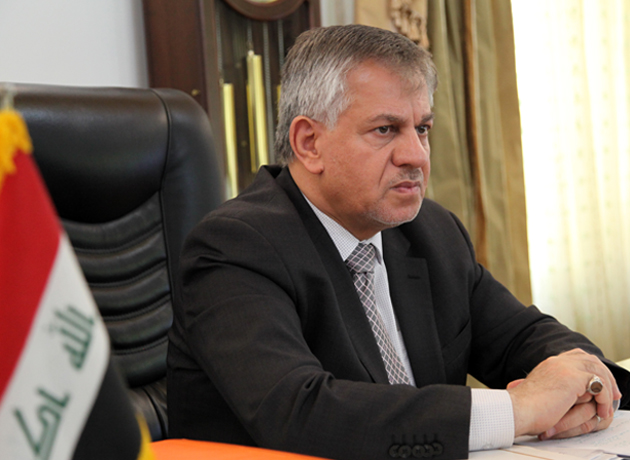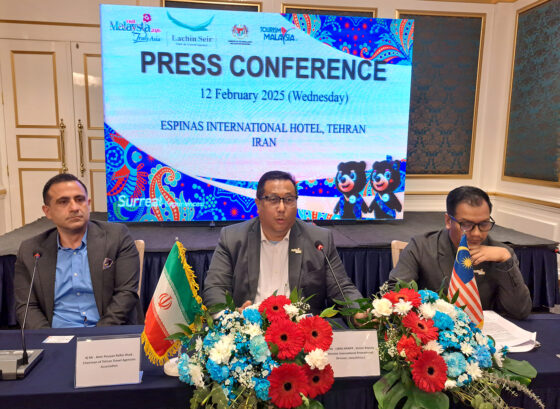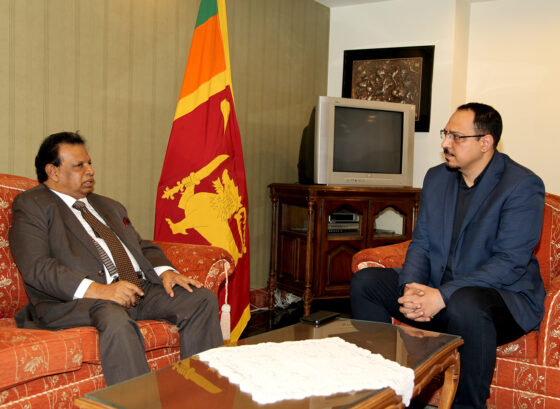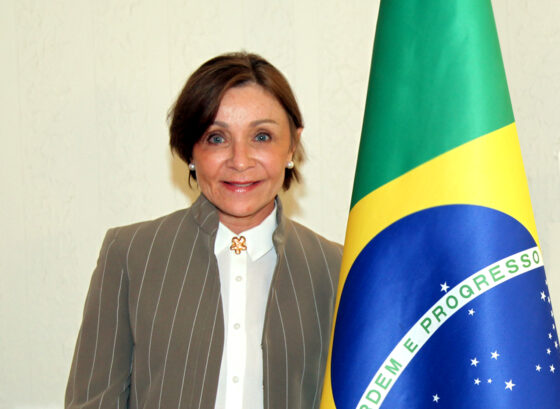“Iraq Is the Only Country Who Holds friendly Ties with all Other Countries in the Region,” States Iraqi Ambassador to Iran.

Dr. Saad Jawad Kindeel believes the relations between Iran and Iraq own deep roots and that Iraq can play a pivotal role in reducing tensions in the Middle East. The Iraqi Ambassador reckons that a war between Iran and the US could leave scarring impacts on his country and the two countries need to stay away from further tensions. A chance was given to us to look into the economic flows between Tehran and Baghdad amidst a storm of US sanctions against Iran, the integration of Popular Mobilization Forces into the Iraqi Army, and the hunches that repeatedly come from the western media in an interview with the Ambassador of Iraq to Iran.
AVA Diplomatic’s Exclusive Interview with
Dr. Saad Jawad Kindeel, Ambassador of Iraq to Iran
Interview by Mohammadreza Nazari
Iraqi officials have tried to mediate negotiations between Iran and the US many times so far, and when the US had military presence in Iraq, they transferred messages between Iran and the US to reduce tensions between the two sides. Under the existing circumstances and given the increased tensions between Tehran and Washington, is Iraq still operating as a corridor to exchange messages?
The relations between Iran and Iraq are long-standing and there are common interests between the two countries, and that is why Iraq does not see itself as a mediator between Iran and the US, but is faithful to play a positive role in calming the circumstances and solve the problems between them. This is because any form of tension and conflict between Iran and the US will negatively affects Iraq. Therefor Iraq cares about smoothing conditions and situation between the two countries and works to find a solution through dialog and diplomatic channels.
Mr. Ambassador, is the corridor between Iran, Iraq and the US that we just spoke of, really open?
As I said, it is not our Iraqi policies to work like a middleman or a corridor between Iran and the US, but it is a belief of Iraq’s to play a positive role in reducing the tensions.
So Iraq will not mediate under the existing circumstances and is simply trying to advise officials on both sides.
Iraq is not a middleman or a mediator, but is playing its role like a partner and direct player.
What could a possible military conflict between Iran and the US do to political and security developments in Iraq and the Middle East?
The impact of this conflict would be catastrophic on the region, in general, and on Iraq, in particular, esp. now that you see that Iranian and US interests could be targeted everywhere, which causes damages as a result. In addition, 30% of the world’s oil is exported through the Gulf. So given that, in case any conflict arises, there will be a global oil crisis which can turn into an economic crisis for everyone all over the world.
Considering that Popular Mobilization Forces forces are integrated into the Iraqi Army, would they assault US stances in Iraq if any conflict breaks out between Iran and the US? Can it run rampant to other areas in Iraq?
No, that is not the truth and is a simple hunch from the media. Popular Mobilization Forces is an Iraqi force, who, according to the law, operates under the Commander-in-Chief of Iraq, who is Dr. Adel Abdel Mahdi. So you cannot say that this force is pro-Iran, but it is a pro-Iraq force that works under the orders of the Commander-in-Chief, just like the army, police and CFT forces.
What objectives and reasons were there for the integration of Popular Mobilization Forces in the Iraqi Army? Does that affect the military cooperation between Iran and Iraq?
Popular Mobilization Forces forces were initially volunteers who had been formed up following the decree of the Supreme Shite cleric, the grand Ayatollah Sistani after the ISIS invaded Iraq. At first, they were called people’s forces who temporarily fought against the ISIS, but after lands were freed and Iraq was cleansed of their presence, the Iraqi officials were at crossroads about it: either disband them as their duty was over or integrate them with other armed forces, because there might be a need for their assistance in future conflicts and countering terrorism, esp. after they displayed incredible capabilities in their battle against the ISIS and won spectacular victories there. Therefor our authorities considered their integration under the law and orders of the Commander in Chief.
How negatively has the restoration of sanctions by Trump against Iran affected the economic ties between Tehran and Baghdad?
 Economic relations between the two countries are on an excellent level, just like the political ties. On Dr. Rouhani’s trip to Baghdad and on Dr. Abdel Mahdi’s visit to Tehran, there were agreements, and based on them, the current trade volume between the two countries shall increase from $12bn to $20bn. In that case, Iran will become Iraq’s no. 1 economic partner. It has come from Iraqi officials at times that they do not recognize the sanctions or consider them illegal, and so, they will not execute them. The sanctions, however, and the standpoint of Iraq has placed the country under pressure, the same as what is happening to Iran. That is why there will be problems and barriers. Until Iraq finds ways to go around the sanctions, and identifying channels to do business with Iran using currencies other than USD. At present, there are ongoing negotiations between the central banks of Iraq and Iran to discuss how to do business cooperation without using USD.
Economic relations between the two countries are on an excellent level, just like the political ties. On Dr. Rouhani’s trip to Baghdad and on Dr. Abdel Mahdi’s visit to Tehran, there were agreements, and based on them, the current trade volume between the two countries shall increase from $12bn to $20bn. In that case, Iran will become Iraq’s no. 1 economic partner. It has come from Iraqi officials at times that they do not recognize the sanctions or consider them illegal, and so, they will not execute them. The sanctions, however, and the standpoint of Iraq has placed the country under pressure, the same as what is happening to Iran. That is why there will be problems and barriers. Until Iraq finds ways to go around the sanctions, and identifying channels to do business with Iran using currencies other than USD. At present, there are ongoing negotiations between the central banks of Iraq and Iran to discuss how to do business cooperation without using USD.
Is Iraq still importing gas and electricity?
Yes.
Considering the fact that the US energy sanction waiver ended and was not extended for Iraq, how has Iraq been doing over the past few months?
The talks are still in progress between the central banks of Iran and Iraq to achieve a mechanism to pay off our debts related to the import of gas and electricity. We also have ongoing negotiations with the US to get sanction waivers extended.
On President Rouhani’s visit to Baghdad, a railroad agreement was signed to connect Shalamcheh to Basra. Have consultations begun to make this project operational? What is the action plan in this case?
Yes. There are currently discussions and exchanges of opinions on the level of technical committees to implement this project and the agreements related to Shatt al-Arab thalweg (Talluk) including railroad agreements and dredging of the river as well as restoring the shipping line to where it used to be in 1975.
It is said that dredging Arvand Rud will cost a sum of 210 million euros. Is there any agreement on its financial aspect?
So far, the technical committee has not discussed the financial aspect yet, and focus is mostly about the operational aspects.
The initial agreement says that in order to do this project, both sides should rely on the technical resources of Iraq and Iran, but if resources do not suffice, then both countries will seek international technical assistances.
You pointed out that you are trying to increase trade volumes between the two countries from $12bn to $20bn, and on the visit of President Rouhani to Iraq, the necessary protocols were signed between them. I would like to know what these protocols include.
The topic these agreements cover to promote the trade volumes between the two countries include the establishment of 5 free commercial zones at the border cities. The second topic was for Iranian companies to cooperate in reconstructing the areas which were damaged as a result of fighting terrorists and work there. The third topic was to restore shipping lines to Shatt al-Arab and activate the Iraqi and Iranian ports located throughout the river which could be very fruitful to the economies of both countries. Issuing free visas can also have a good impact to promote tourism between the two countries.
Issuing free visas for Iranian pilgrims would spectacularly increase the demand to visit Iraq. Does the government of Iraq have any plan to enhance and strengthen the infrastructures for hosting and offering services to tourists?
Regarding the Arbaein pilgrims, NGOs and volunteers provide free services. These services could almost cover every aspect of the infrastructure for Arbaein pilgrimage. The key role of the Iraqi government is to provide security for the pilgrims and facilitate the common measures among NGOs to offer them services. Iraq is prepared to welcome and host almost 3 million Iranian pilgrims who are anticipated to take part in Arbaein. The government of Iraq is well prepared to offer the pilgrims security, transportation and medical services.
3 million pilgrims was for when the visa was not free. I think now that it is free, the number of pilgrims will be much higher.
Last year, the number of Iranian pilgrims reached 2 million. This anticipation is based on the two recent measures we took, i.e. visas will not have any cost and they will be issued at the border in Arbaein days.
Mr. Hosseini, the chairman of the Iran-Iraq Chamber of Commerce stated that the visa stamp will not be left in passports soon, and there will just be an entrance and departure signature. Is that so?
Such agreements between countries are mostly put into effect in certain times and circumstances, but now, visa issuance is in progress and the stamp is going to be on passports.
It seems that you have kept this news for Arbaein, right?
As I said, the ongoing procedure would be for pilgrims to receive their visas inside their passports.
In your meeting with the governor of Tehran, you asked for a meeting between the economic activists of the two countries, esp. those whose business is down now. Are these industries identified at the moment? Can these meetings be effective per se?
We will continue our talks with the governor of Tehran and other related authorities at the Chamber of Commerce as well as officials of the Ministry of Industry, Mine and Commerce.
So the process has really begun.
Yes, we took the first step with the governor of Tehran and reached an agreement to continue our discussions in future meetings.
What consultations are in progress in terms of biotechnology and nanotechnology between the two countries? There is nothing about that on the news.
There is scientific, technological cooperation between Iraq and Iran, in fact. It is clear to Iraqi officials that Iran is pretty advanced in these areas, and Iraq is trying to make the most of its experiences. At the moment, the cooperation is ongoing on the level of the Ministry of Science along with the universities of Iraq and Iran. Thousands of Iraqi students are studying at Iranian universities and using the technology. Coupled with that, there are exchanges, periodic trips between the authorities on the two sides. The last trip was the visit of the ICT Minister of Iraq to Iran and taking part in the Smart Iran Exhibition held in Tehran a few days ago.
What plans does the Embassy of Iraq have to further improve cultural relations between the two countries since you arrived here in Tehran? During the mission of your predecessor, the cultural center was almost shut down. It seems like Mr. Yasser Abdel Zahra al-Hajaj is operating independently of you.
Cultural cooperation between the two countries is very important and I regret the fact that the cultural center was shut down. I hope for things to work out for the best and the center reopens.
Another thing I need to explain is that Mr. Yasser Abdel Zahra al-Hajaj’s activities have nothing to do with cultural affairs. He is a educational advisor and his duty has to do with students and educational affairs. In fact, his title is not correct, and it had better be educational advisor who works with the Ministry of Higher Education of Iraq. The Cultural Center of Iraq is related to the Culture Ministry of Iraq and it is they who can reopen it and decide for the level of the cultural relations between the countries.
You stated that Iraq is trying to obtain its pivotal position in the Arab region and the Middle East. What approach has the government of Iraq adopted to make this happen among Arab countries? Has it have any tangible achievements thus far?
To regain its pivotal position in the region in general, and in the Middle East in specific, Iraq recognises a number of principles. First, security is non-divisible and cannot be disintegrated, which means when one country has security, others will have the same. If a country looses security other countries will loose too. It is a fact; either everyone has security or no one does. So there are common interests among countries in this regard to cooperate with one another to achieve peace and stability. This way they can be responsible for bringing and maintaining security to their homes instead of relying on foreign powers. Second, political feuds among the countries in the region should be worked out through dialogs, not confrontation. There are serious tensions in the region between Saudi Arabia and Syria, Saudi Arabia and Iran, Saudi Arabia and Turkey, Syria and Turkey, etc. It appears Iraq is the only country who holds friendly relations with everyone around here. To this end, the first step was taken by Iraqi Speaker of the Parliament who sent invitations for his counterparts in Iran, Turkey, Syria, Jordan, Saudi Arabia and Kuwait and they all accepted it, took part in the conference, sat on one table, and discussed the mutual interests of the region. Now, Iraq is looking to take the second step and organize a similar meeting, but this time, on the level of foreign Ministers, Prime Ministers or Presidents which is essential to promote this to an executive level. Iraq tries also play a key role in this to restore effectiveness of the Arab League, which is now half-shut due to the conflicts amongst its members. We try to pass a new regime to run the league and restore Syria’s membership.




